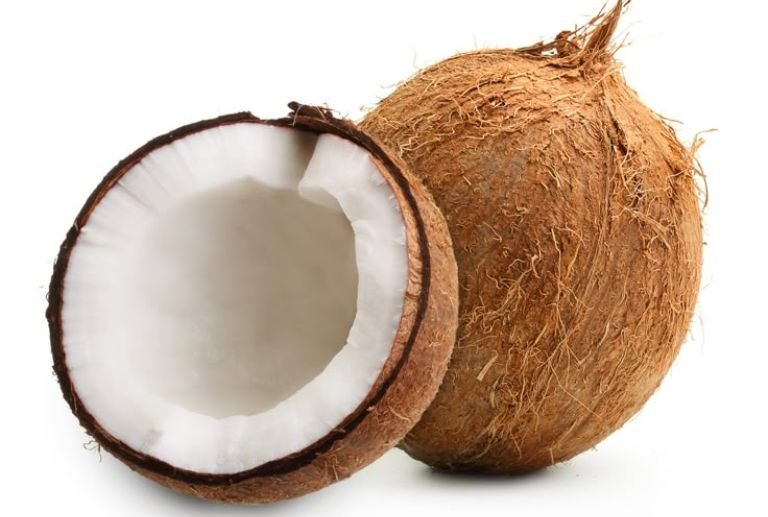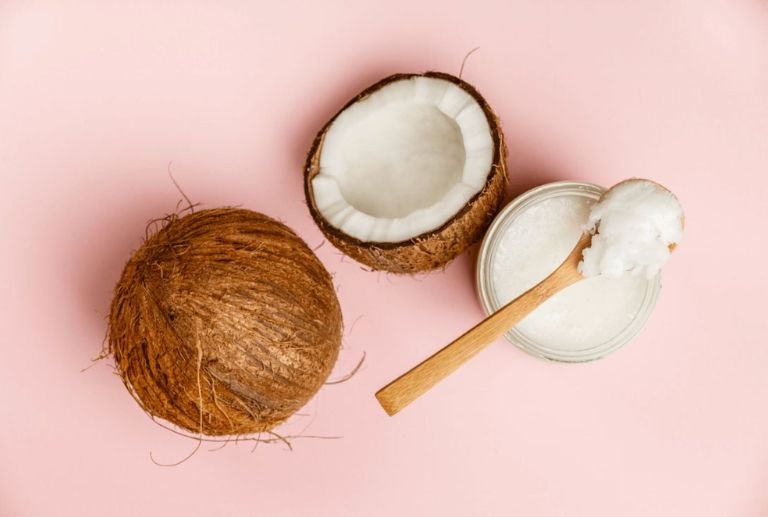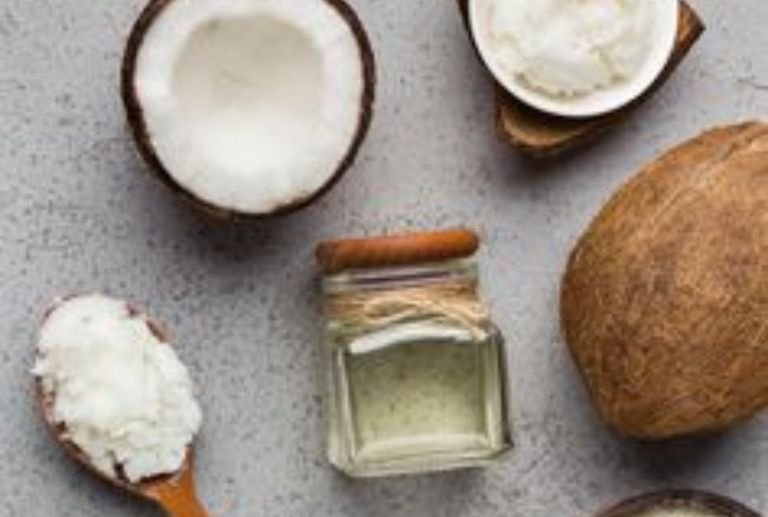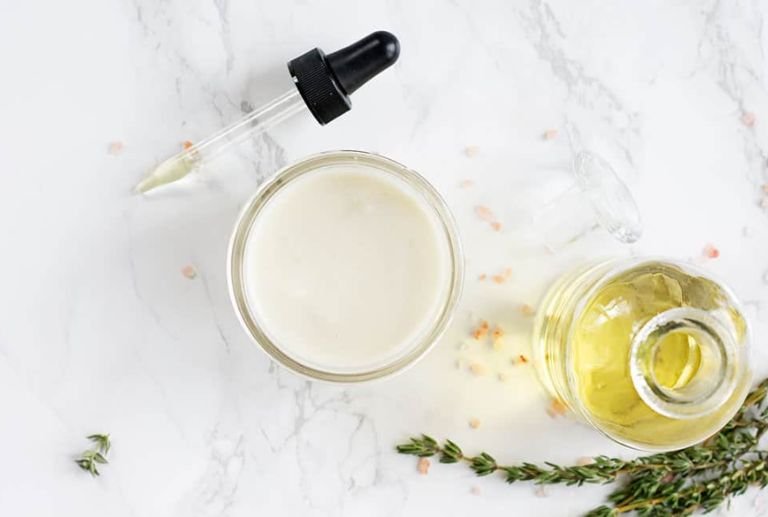Table of Contents
There was a time when I only thought of coconut oil as something that belonged in the kitchen, perfect for baking or adding to coffee for that extra kick. But over the years, I found myself reaching for the jar in my cupboard not for food but for my skin. It started when I was dealing with dryness, and everything I tried felt too harsh or synthetic. That’s when I turned to this natural tropical oil — and I haven’t looked back since.

Rich in saturated fats and fatty acids like lauric and linoleic, coconut oil is more than just a trend. These acids are known to be hydrating, moisturising, and antimicrobial, helping skin retain moisture and fight off bacteria. I noticed a big difference in how my skin responded — it felt softer, more nourished, and visibly healthier. As a natural emollient, it’s full of nourishing ingredients that work like a charm, even compared to high-end cosmetic products. Plus, it smells like a dream, which never hurts.
Experts like dermatologist Joshua Zeichner, MD, emphasize how this oil’s unique properties and benefits stem from its composition. It’s beneficial in many ways — from boosting hydration to acting as a mild cleanser. Whether you’re creating a full routine or just need something to treat flaky patches, coconut oil brings both effectiveness and that wallet-friendly charm. In my experience, it’s earned its place not just in the kitchen but on the skincare shelf too.
What is coconut oil?

It’s a plant-based oil extracted from the white meat or kernel of raw coconuts, known for its high saturated fat content. At room temperature, it stays solid, but it easily melts or softens when heated, turning into a clear liquid. Science backs its benefits—studies show it contains fatty acids like lauric, myristic, and linoleic, all of which contribute to its natural ability to nourish the skin. While it’s widely used in cooking, cosmetic, and even industrial applications like biodiesel, I’ve found its real magic lies in what it does for the skin—leaving it smooth, hydrated, and healthy.
Benefits of Coconut Oil
Coconut oil have numerous benefits some are here:

Deep Moisture and Skin Softening
Coconut oil is incredibly moisturizing, especially for dry skin and conditions like eczema and rosacea, as it helps reduce transepidermal water loss (TWL) by forming a protective barrier that locks in moisture. Its emollient properties come from medium-chain fatty acids like lauric and linoleic, which are essential for repairing the skin’s outer layer.
Anti-inflammatory and Skin Soothing
Rich in antioxidants and polyphenols, coconut oil may help with reducing inflammation caused by UVB rays, offering soothing relief from irritation. Studies show its effect on genes related to inflammation, suggesting the potential for calming rashes, atopic dermatitis, and other sensitive skin issues.
Wound Healing and Skin Protection
It may promote wound healing by supporting the skin’s function and reducing bacteria exposure. Thanks to its antibacterial, antifungal, and antiviral properties, it can help treat mild wounds, scratches, and razor burns, making it a handy addition to your medicine cabinet.
Baby Skin and Sensitive Barrier Strengthening
For infants with low birth weight, virgin coconut oil has been found to strengthen the skin barrier, helping protect against health complications, making it a natural and gentle choice even for the most delicate skin.
Skincare Routine Essential
As someone with blemish-prone skin, I use it only on the body, avoiding the face due to its comedogenic nature, which may clog pores. However, for the rest of the body and hair, its benefits are unmatched, especially for dehydration, plumped texture, and softness, thanks to vitamin E and its ability to deeply absorb into the epidermis.
Antimicrobial and Dandruff Support
With lauric acid making up 49% of its composition, coconut oil shows antimicrobial properties that may reduce bacteria and help with dandruff, though the effectiveness is still unclear, and more research is necessary.
Makeup Removal and Cleansing
As a natural cleanser, coconut oil works wonders to dissolve makeup, including waterproof products, due to its oil-based nature. It binds to makeup and removes it gently without stripping the skin.
Environmental and Aging Defense
High in antioxidant content, it helps fight free radicals, pollution, and other environmental aggressors, which are known to cause premature ageing, fine lines, and skin damage—a benefit often overlooked but crucial for overall skin health.
Uses of Coconut Oil
Here are a few ways to add coconut oil into various steps of your skin care routine:

Body Moisturizer
After showering or bathing, I like to apply a small amount of coconut oil to my body, especially the neck, elbows, knees, hands, and feet. It absorbs quickly, leaving my skin soft and hydrated, even on dry days when air conditioning or heaters strip away natural moisture. Whether you prefer cold-pressed, refined, or virgin types, each works to replenish and soothe drying effects.
Makeup Remover
Using coconut oil as a makeup remover has been a game-changer. I use a cotton ball or pad, then follow up with a gentle cleanser or double cleansing using a water-based option to lower the risk of clogged pores and milia—especially if your skin tends to be sensitive or oily.
Lip Balm
For dry, irritated lips, a dab of coconut oil works better than most store-bought chapsticks. It keeps them moisturized and hydrating, and since it’s edible, I don’t worry if I end up licking it off during the day.
Hair and Scalp Treatment
On hair, I massage coconut oil directly, let it leave in for a desired time, and then wash it out with shampoo. It’s especially helpful if you’re dealing with dry scalp or strands, and I always recommend a test on a small area first to avoid adverse reactions.
Types of Coconut Oil
When it comes to using coconut oil for skin care, knowing the different types can help you choose what’s best for your needs.
Virgin coconut oil
Virgin coconut oil, made from fresh coconuts, is unrefined and loaded with antioxidants, phytonutrients, and fatty acids that work as effective moisturizers—I use this as part of my nightly routine because it keeps my skin soft without additives.
Refined coconut oil
Refined coconut oil, on the other hand, comes from dried coconut meat and goes through extra processing like machine pressing, chemical solvents, bleaching, and deodorizing, which reduces its benefits but makes it less potent in scent. Then there’s cold-pressed coconut oil, extracted without heat, preserving more nutrients—this is my go-to for sensitive areas.
Expeller-pressed coconut oil uses steam or heat and may lose some of its natural properties. Finally, hydrogenated coconut oil is treated with hydrogen to stay solid in warm climates, but it contains artificial trans fats linked to heart disease and stroke, according to the American Heart Association (AHA)—safe for the skin, but not ideal for eating. I always suggest choosing organic oils free from pesticides, chemicals, and additives whether you’re using it as a moisturizer, lip balm, or shaving cream.
What type of coconut is best for skin?
When it comes to skincare, I always reach for pure, unrefined, and cold-pressed coconut oil because it’s made from fresh coconuts without heat, helping to preserve more nutrients and that natural flavor. This type, often labeled as virgin coconut oil, hasn’t been through harsh processes like refined oil, which is made from dried coconut meat and might remove beneficial compounds.
It’s loaded with antioxidants, lauric acid, and anti-inflammatory properties, which can protect the skin from damage caused by free radicals. I suggest applying a small amount to hydrate, moisturize, and soften dry areas—just avoid sensitive or acne-prone spots at first and monitor how your skin reacts. What I love most is knowing it’s natural and free from added ingredients or chemicals, making it my go-to for healthy skin hydration and overall health.
FAQ’s
- Is it good to use coconut oil on face?
Coconut oil can deeply moisturize and soothe the skin, but due to its comedogenic nature, it may clog pores—so it’s best to avoid using it on acne-prone or sensitive facial areas.
- Does coconut oil make lips pink?
While coconut oil won’t change lip color, its hydrating and nourishing properties help soften and heal dry lips, making them look naturally healthier and smoother.
- What is the benefit of using coconut oil?
Coconut oil provides deep moisture, supports skin barrier repair, soothes inflammation, and offers antimicrobial protection, making it ideal for dry or irritated skin.
- Which oil is good for skin?
Unrefined, cold-pressed, virgin coconut oil is one of the best choices due to its natural nutrients, antioxidants, and hydrating benefits without added chemicals.